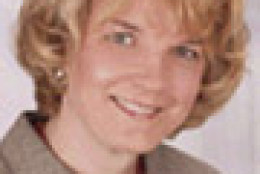Retirement
-
Even if your retirement plan consists of a couple of coin-filled Mason jars behind the refrigerator or buried in the backyard, Senior Correspondent Mike Causey says you should take the numbers test.
May 29, 2015 -
Senior Correspondent Mike Causey explains what impact a recent Supreme Court decision will have on your Thrift Savings Plan.
May 28, 2015 -
Tammy Flanagan with the National Institute of Transition Planning will answer your retirement planning questions, including how to choose the right retirement date for you. May 27, 2015
May 27, 2015 -
By picking the right date, federal employees can maximize their income for that year, minimize taxes for the following year and get the most money out of their unused annual leave, says Senior Correspondent Mike Causey.
May 27, 2015 -
Federal Drive host Tom Temin joins Mike Causey to discuss fed bashing and federal job security, and Federal Times senior writer Andy Medici will tell us Congress has in store for feds after the Memorial Day break. May 20, 2015
May 20, 2015 -
In a few years the Thrift Savings Plan could feel more like a private plan. With a more participant-focused strategy the Federal Retirement Thrift Investment Board will make a shift to providing greater access and flexibility and a more informative customer service experience.
May 19, 2015 -
At 80-years-old, the Social Security Administration is hardly retiring like the millions of Americans it supports. In fact, it spends a lot of time looking far into the future. Social Security recently released Vision 2025, a living document designed to outline how SSA can accomplish its three main priorities: Better customer service, exceptional employees and organizational innovation. Carolyn Colvin is the acting commissioner of SSA. She joined Tom Temin on the Federal Drive to review more about Vision 2025, and outline what else it can help SSA accomplish.
May 18, 2015 -
Some longtime federal employees in the Federal Employees Retirement System have access to the FERS Supplement. Tammy Flanagan, senior benefits director for the National Institute of Transition Planning, tells In Depth with Francis Rose when you should use it and why your FERS supplement is different from your Social Security benefits.
May 15, 2015 -
The Senate Armed Service Committee\'s version of the annual Defense authorization bill would revamp military retirement, order DoD to reduce its headquarters and sidesteps sequestration by using the Pentagon\'s overseas contingency accounts.
May 15, 2015 NITP Senior Benefits Director Tammy Flanagan joins host Mike Causey for an hour long discussion of the pending phased retirement program. May 13, 2015
May 13, 2015-
Although phased retirement has been in the works for a couple of years, nobody is sure what it will look like, how it will work and how it may vary from agency-to-agency, says Senior Correspondent Mike Causey.
May 13, 2015 -
People under the old Civil Service Retirement System have a little-known perk called the Voluntary Contribution program. Lucky them, says Senior Correspondent Mike Causey.
May 08, 2015 -
NARFE legislative director Jessica Klement and Federal Times reporter Andy Medici join host Mike Causey to discuss proposed benefit cuts for federal workers and retirees. May 6, 2015
May 06, 2015 -
It\'s taking longer for the Office of Personnel Management to process retirement claims. By the end of April, OPM had processed less than three-quarters of claims in 60 days or less.
May 06, 2015 -
Office of Personnel Management Director Katherine Archuleta will appoint a board to make recommendations about and advise on issues affecting federal retirement plans.
May 04, 2015




